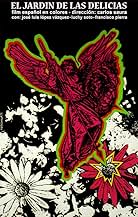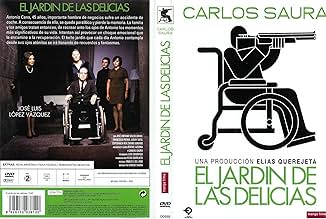Carlos Saura's "Garden of Delights" is a sly, black comedy about personal and political repression under Franco's regime. Psychodramas and shock therapy are among the tools of the trade employed to jump-start the memory of a wealthy industrialist recovering from an auto accident but still confined to a wheelchair. That his loved ones are in fact the instigators of such crude and farcical attempts to pry open the amnesiac's Swiss bank account should come as no surprise to anyone remotely familiar with Spanish history and culture. But Saura's dark tale, it seems, may proved too daunting to audiences who are unwilling to give themselves over to the film's dreamy, ruminative style that deliberately shunned "objective reality" for a subjective and interpretative approach to cinema. In Saura's view cinematic "reality" should represent the repressed state of the nation's collective consciousness and its refusal to surrender its dreams under those conditions. The debilitating conditions of fascism should not inhibit other forms of realities to exist or to challenge the prevailing political reality so that what "is" is not necessarily more important than what "should" or could have been. Scenes, real or imagined, accordingly compete for our attention throughout the narrative much as if the delights of the garden only become apparent after careful introspection and reflection. If fascism is indeed the soul of the new machine, then paralysis is just a state of the mind.




























